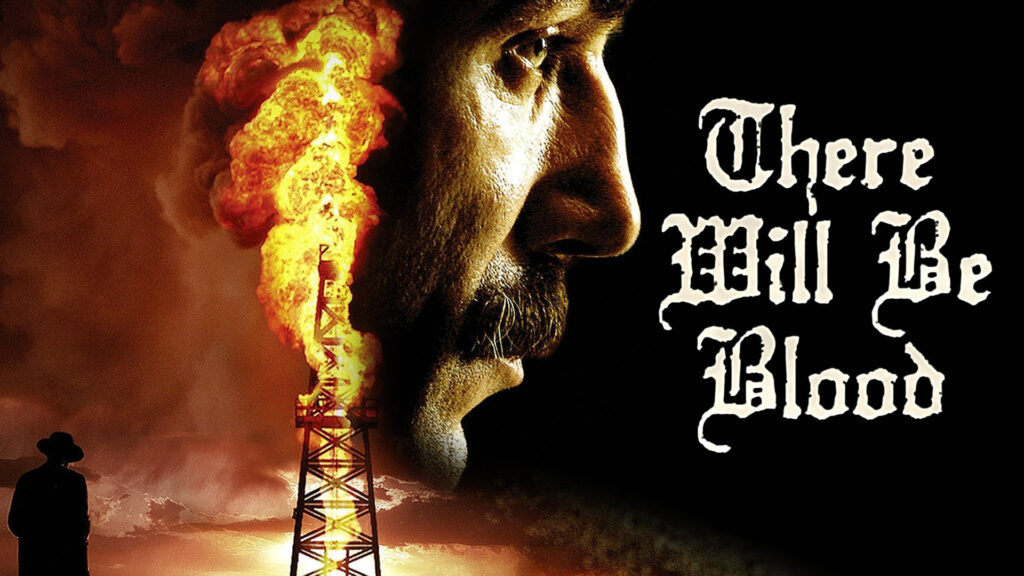What happens when you take two ruthless and cunning manipulators and present them both with the opportunity to make a fortune? “There Will Be Blood” (2007) is a haunting historical drama directed by Paul Thomas Anderson that exemplifies the dangers of unchecked ambition and greed at the turn of the 20th century. The film follows Daniel Plainview (Daniel Day-Lewis), a ruthless oilman whose relentless pursuit of wealth and power puts him at odds with a young preacher, Eli Sunday (Paul Dano), in the small California town of Little Boston. With masterful direction, stunning cinematography, and a thunderous score, Anderson crafts a slow-burning epic that is as unsettling as it is mesmerizing. Yet, as excellent as the direction is, the film wouldn’t be nearly as impactful without the one-in-a-lifetime performances by both Daniel Day-Lewis and Paul Dano. Honestly, this movie is so good, it has the temporary effect of outshining every other film you’ve seen recently. It makes you want to watch the film – or at least certain scenes – over and over again. This film is one of my favourites because you can watch it for the first time and plainly view how greed can rot a person from the inside-out, or you can watch it again and study it further and extract any number of other powerful themes.
Let me highlight a few of them and hopefully you’ll see what I mean on your next watch.
Rating: 10/10 Milkshakes
**Major Spoilers Ahead**
“Say It Again, Daniel”
Voice As A Weapon of control

One of my favorite facts about this movie is that, unless you count a single painful gasp back to life, the film begins with 10 minutes of no dialogue. Unlike the introduction to A Minecraft Movie, it is clear that Paul Thomas Anderson has mastered the art of “showing” the audience instead of “telling” them a bunch of boring exposition. In just a few silent minutes, we learn that Daniel is a man who has no problem with isolation and will go to great, even painful, lengths for wealth. The other thing I love about this introduction is that after Daniel gets out of the mineshaft and begins pulling himself to safety, it pans up and plays that sharp, shrill sound effect you often hear in horror movies. As if to imply that Daniel surviving is actually a terrifying thing. It could have played some heroic crescendo like in a superhero film, but the dramatic sting subverts expectations and keeps the audience weary of the character.
The first instance of dialogue only occurs when Daniel attempts to convince the people of a New Mexico community to lease their land for his drilling operations. He claims to be a family man who runs a family business, but his son stands silently next to him as he says his sleazy spiel. As if his son is more of a prop than a person with a voice of his own. For both Daniel and Eli, dialogue and speech are just tools to exploit and manipulate people for their own ends. Daniel Day-Lewis masterfully created a voice and manner of speaking for Daniel Plainview that is not only iconic, but strangely pleasant. It’s an accent so buttery smooth that it makes you forget you’re being offered just a small fraction of what you should be entitled to for your land. Perfect for a conniving and selfish salesman.

On a similar note, Paul Dano does an excellent job of playing a preacher who has no problem hamming it up for his congregation in order to put himself at the center of their faith. From whispers to full blown shouts, Eli Sunday uses his vocal control to keep his flock hanging on and believing his every word. However, the conflict truly begins when these two men try using their vocal talents to manipulate each other as well. In the first two acts of the film, Daniel cannot get the verbal upperhand on Eli. He attempts to when he wants to first coax out the information about Eli/Paul’s land without paying him and he attempts it again when finally negotiating with Eli and his father for the lease. This marks the beginning of Daniel’s hatred for Eli that keeps boiling up throughout the film.
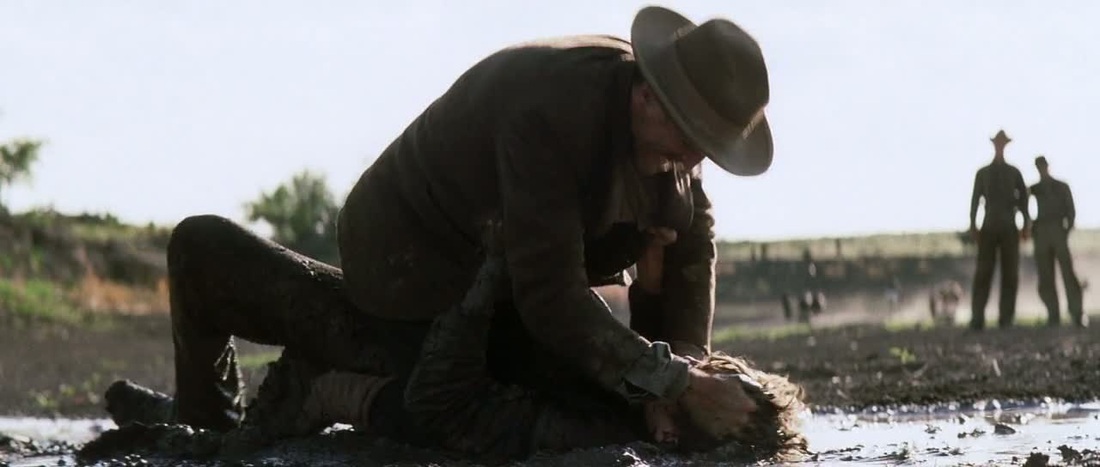
However, Daniel is able to physically overpower Eli, which we see when Daniel slaps Eli around in the mud. Eli doesn’t take this act of dominance lightly and when presented with the opportunity, uses the authority given by his sermon to publicly slap and shame Daniel for his sins. The scene in the church is a powerful moment because Eli uses Daniel’s own voice against him by making him repeat his sins aloud until he finally shows physical regret for his actions. We see this scene mirrored in the final act of the film when Daniel is using Eli’s own voice against him by making him admit his false priesthood in the style of a sermon. It should be pointed out that both scenes are verbal blasphemy, but from different sides. However, when it comes time to pay Eli back for the slaps in the church, Daniel grabs a wooden bowling pin instead. The verbal and physical conflicts throughout the film makes the final line of the film even better because not only is Daniel getting the last word over Eli, it’s Daniel using his voice to control even the film itself. As if there is no one left to manipulate except for the audience. In that single line, Daniel becomes the director cueing for that final song to play before cutting to black and then title card. And I love that the music takes a second after the line to come on as well. As if the band had to think, “Oh was that our cue? I think it was!” before catching up to Daniel’s direction.
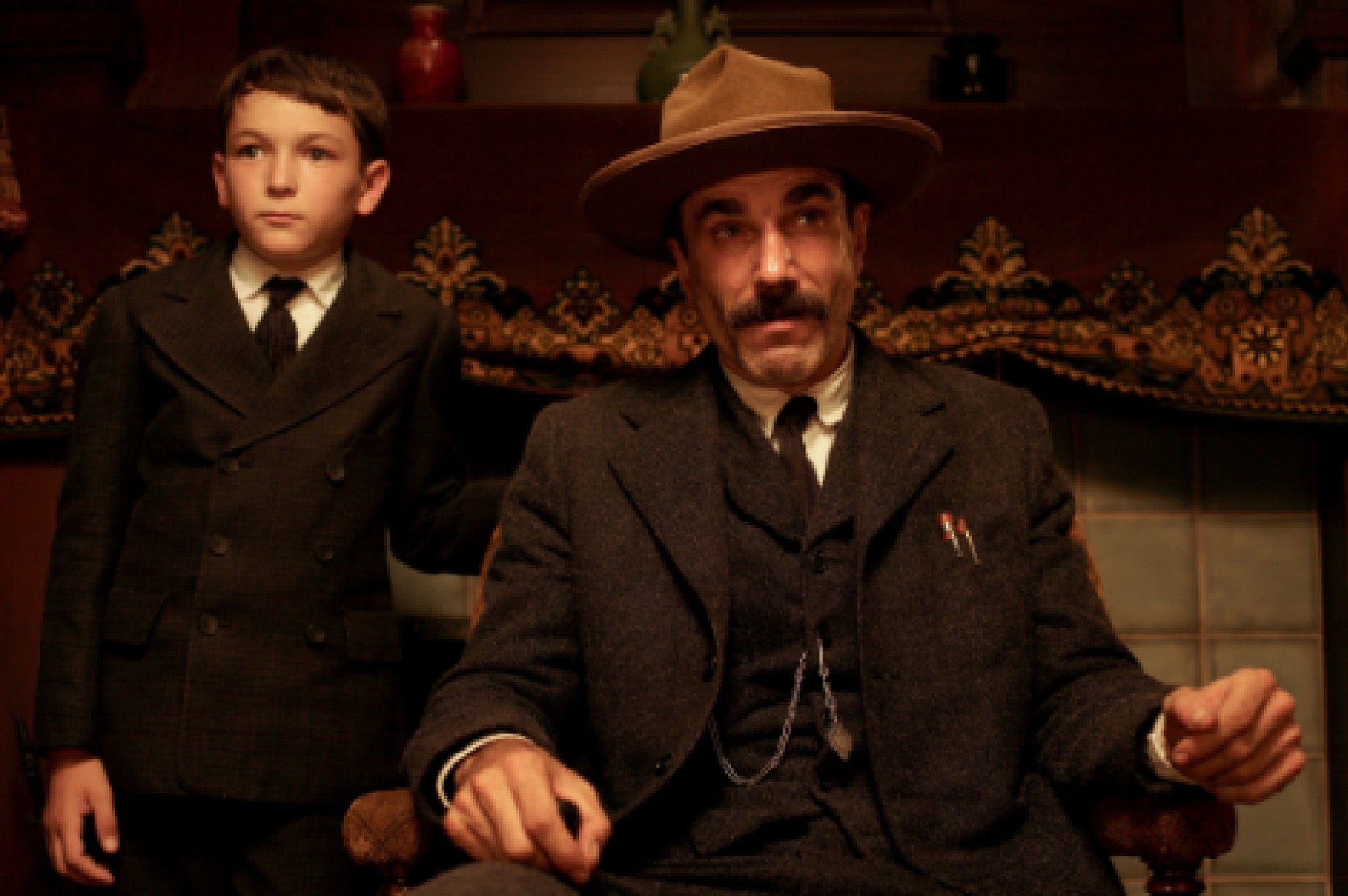
Besides Eli, there is one more person that Daniel is not able to control with his voice: His adopted son, H.W. Plainview. When H.W. loses his hearing, that signifies the moment when he could begin escaping Daniel’s control. By not being able to hear and refusing to talk, H.W. resists the very medium by which his father controls the people around him. By entirely avoiding his father’s conversational prowess, he becomes less of a prop and more of a problem for Daniel. I love how dark of an idea it is that while Daniel understands his son is not able to hear, he still insists on trying to verbally talk to him. Daniel refuses to learn sign language to communicate with his own son because he figures if he can’t talk to him, he can’t control him, and therefore he is useless to him. Thus, when Daniel realizes he can keep up the appearance of being a family man by using his “brother”, he abandons his boy. This makes it even more poignant when H.W. uses a combination of his own voice and a sign language interpreter to tell off and abandon his father at the end of the film.
Rotten From The Start
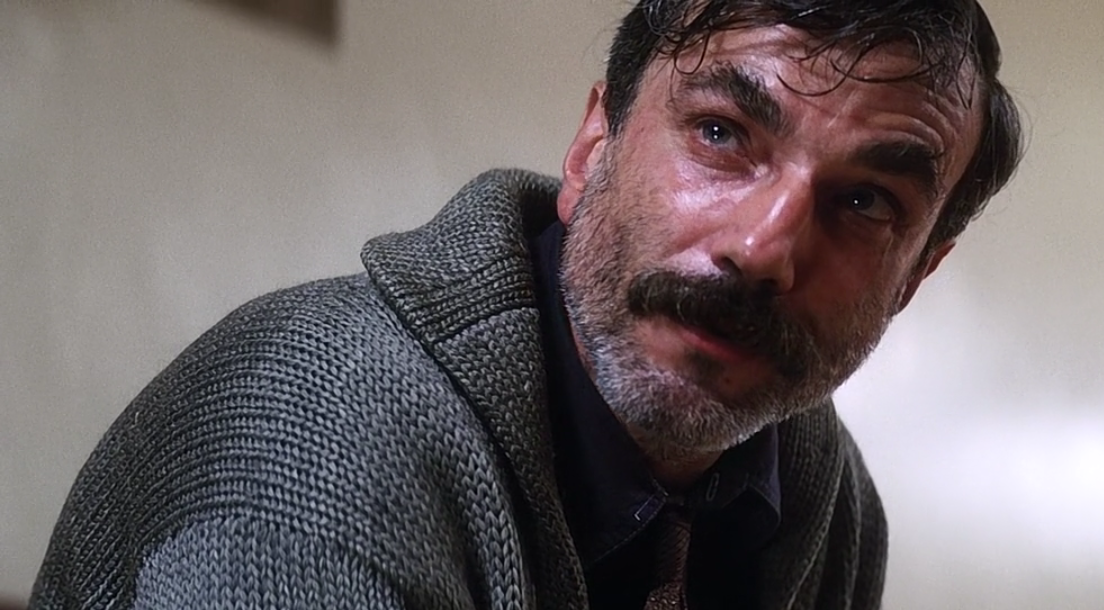
Another reading of the film is that Daniel is driven to be as unhinged as he becomes, due to the grief of his son’s illness, and the betrayal by his supposed brother. However, there is equally strong evidence to indicate that Daniel was this way the whole time, he just had less reason to hide it as he became more successful. I think this is the correct interpretation and I’ll explain why. Daniel Plainview has always been a deeply flawed human being. He shows good qualities, but he harbors ill will for all those around him. This is what that Horror Sting soundtrack is trying to warn us of in the beginning of the film. Daniel aspires to collect enough wealth, at the expense of anyone and anything, in order to build his perfect isolation. This is confirmed when he has that private moment with his brother and delivers a bone-chilling monologue.
“I have a competition in me”
Like it’s living inside him, festering and motivating him. A drive that he was either born with this or has had for a while.
“I want no one else to succeed”
Beyond being competitive, Daniel is naturally vindictive. It’s not only enough for him to rise in status, he wants to push others down beneath him. Not the sign of a healthy individual.
“I hate most people.”
His brother then counters without fully taking in the weight of what he’s saying. Assuming he’s just insanely competitive, but not murderously so.
“Well, if it’s in me, it’s in you.”
It’s not. It’s not in most people, actually.
“There are times when I look at people and I see nothing worth liking.”
We see this happen as soon as Daniel realizes how he’s been betrayed by this man acting as his brother. He looks at him with such utter disdain (great acting) that we fear for the other guy’s life. And we are right to.
“I want to earn enough money so I can get away from everyone.”
Henry then questions him about H.W. and Daniel dodges the questions about his son, and admits he would rather talk about himself.
”I don’t want to talk about those things. I see the worst in people, Henry.”
This is a very revealing moment because the audience can see he would rather discuss his disgust of other people than talk about the condition of his injured son.
“I don’t need to look past seeing them to get all I need. I’ve built up my hatreds over the years, little by little.”
Confirms what was mentioned earlier about how Daniel has always been rotten. He just has less reason to hide it as he becomes more successful.
“Having you here gives me a second breath of life. I can’t keep doing this on my own… With these… People…”
We can tell from this line that Daniel doesn’t think much about the people around him, not even his found family. The moment he considers someone useless or not of his blood, he abandons or kills them. We see this when he does not hesitate to kill the imposter after learning the truth. Daniel has no remorse despite this man having helped Daniel and kept his confidences. And when Daniel cries over the journal of his brother, he’s not mourning the loss of a brother he didn’t know, he’s mourning the opportunity to be understood by someone with equal competitive drive. Someone who could be just as flawed as him.
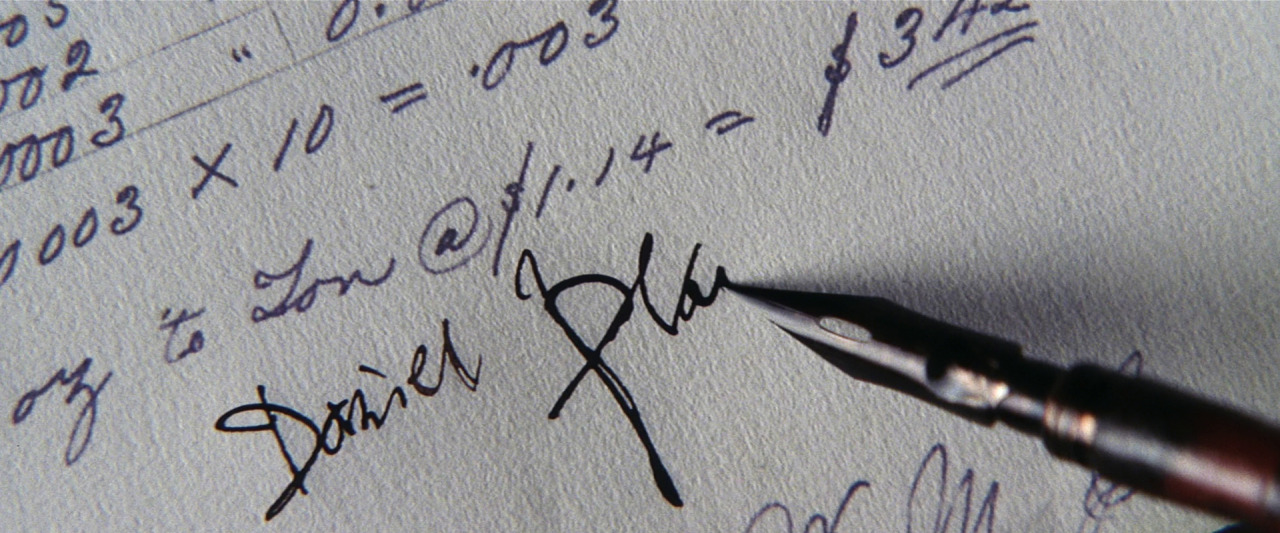
As seen twice throughout the movie, he only keeps H.W. for as long as he needs him and can control him. Instead of being there for when H.W. needs his father. Before H.W. comes to see his father for the last time, we see Daniel signing important papers. This is a callback to the beginning of the film when he sells his first bit of silver and the audience can read his signature. This shot signifies the moment where Daniel has achieved all that he can and has overcome everyone. It’s the moment where he no longer needs H.W. to keep up the portrayal of a family business. It’s Daniel’s turning point, where he can display all his ugliness on the outside with his actions and words. He no longer has to hide for the sake of his brand, so he lets loose. Right at the back of Eli’s head.
The Brothers Sunday
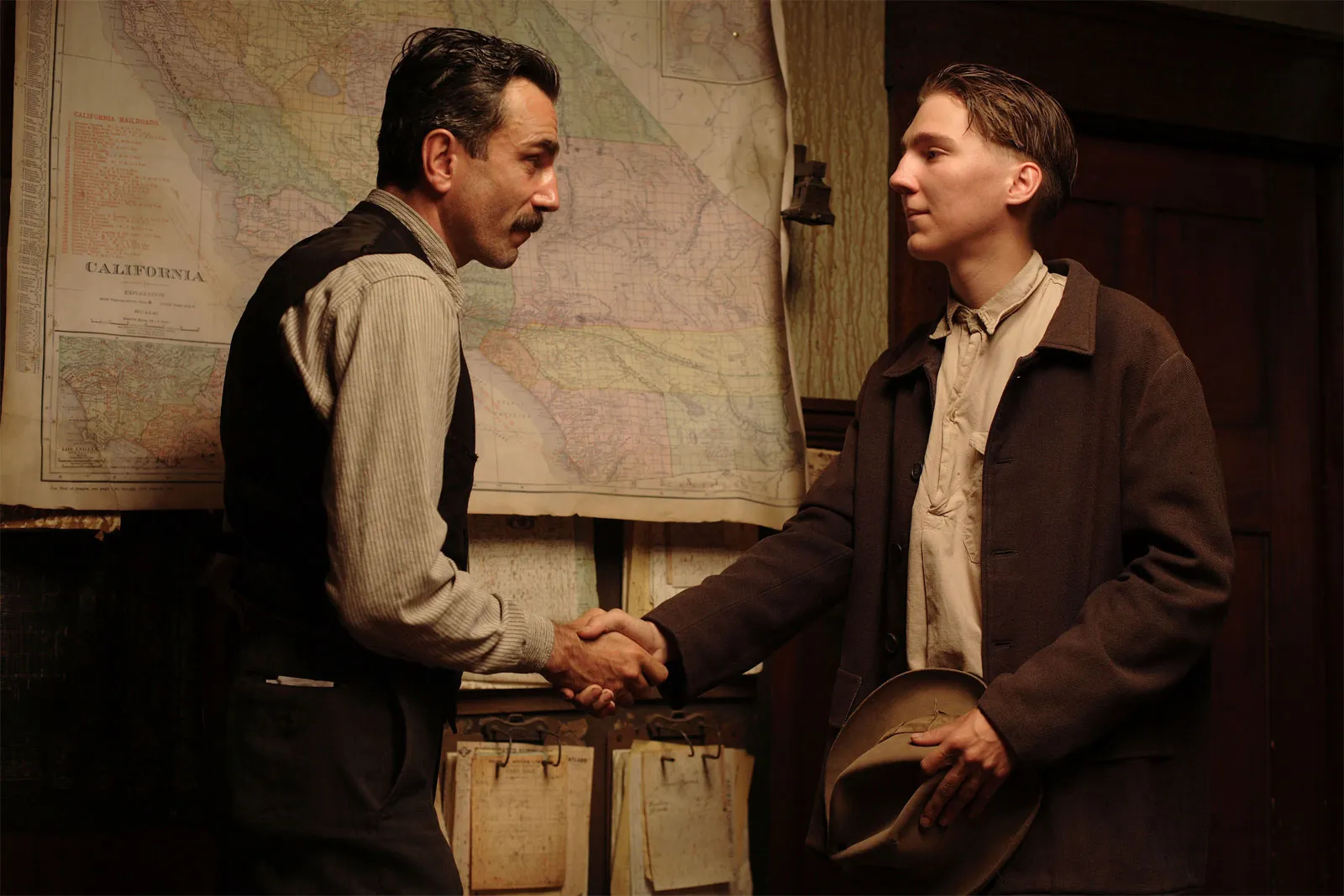
On my first watch of the film, I was confused about whether Paul and Eli were meant to be the same person or not. However, I was so mesmerized by the film, I actually didn’t think about it until the end. It was only after my 3rd or 4th watch that I decided to actually look into it. What I’ve found is that Paul and Eli were meant to be distinct roles. Two different sons to Abel Sunday. Eli’s original actor quit too close to the deadline so Paul Dano stepped in to be both.
This can be a confusing choice to wrap your head around and the direction of the film kind of justifies alternate interpretations of the movie because of it. This open-endedness adds to the depth of this film as two people can watch simultaneously and still extract different information. One might think that Paul and Eli are identical twin brothers who share not just their looks, but their knowledge of the oil seepage. Another might think Paul is also Eli, who is trying to take advantage of Daniel by luring him there.
In Paul’s introductory scene, he seeks out Daniel and sells him information about the land so he can get some money and go out on his own. Or, it could be seen as Eli disguising himself as Paul and luring Daniel to the ranch so he can make a more lucrative offer there. I like this interpretation better because when Eli brings Daniel and his son the firewood for the first time, he seems to have a bit of amusement and recognition on his face. This also better explains why Eli insists on Oil prices instead of Quail prices for the land. He is aware of the oil because he is the one who sold the information to Daniel in the first place. The same person with the cunning to lure a ruthless oil man to him, is the same one willing to negotiate the price of his family’s land and access to his church. It also makes sense because it feeds into Eli’s notion that he is the one who brought wealth to his family through his intellect. Abel believes God brought Daniel to them, Eli thinks it’s his own cunning.
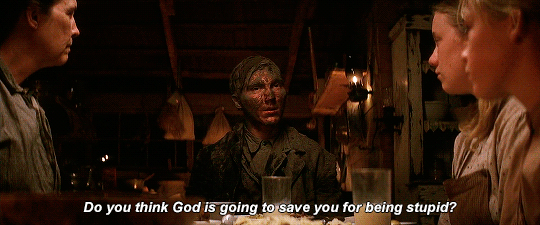
Besides one or two mentions, the audience then pretty much forgets that Paul exists until the end of the movie, when Daniel incorporates him into his monologue. This scene again makes it hard to decipher whether Paul is real or just a persona. Daniel talks about how Paul was the smart brother because he took his money in hand and started his own drilling business, but we know Paul left with only a few hundred dollars. In this scene, he is either lying to try and hurt Eli into thinking his brother got more money than him, or he is making fun of how Eli could’ve potentially outsmarted him right at the beginning. You can interpret this scene either way because it’s fairly ambiguous. Eli’s dialogue does nothing to confirm it and the attention shifts right back to the two of them anyway.
This ambiguity is also present in that scene where Eli attacks his father at the table. You could interpret it as Eli letting Abel know that Paul sold them out to a man who would walk all over their father, or you could see it as Eli admitting he is the one who brought Daniel over because he knew his father was weak. Either way, it’s still a powerful character moment despite what you think is true. There is also the chance that I didn’t do enough research and need to revisit the topic. Do let me know in the comments below.
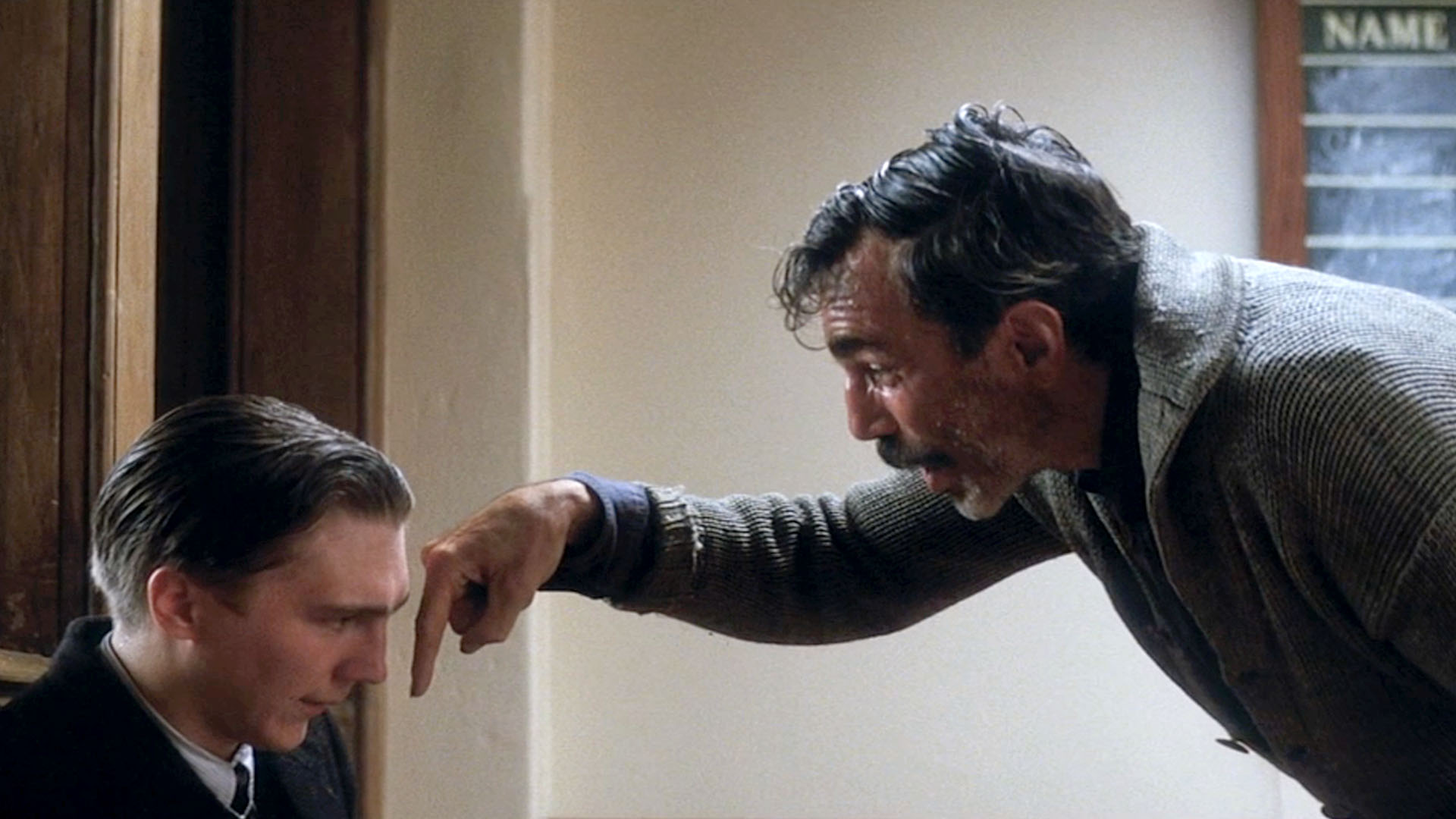
Hopefully on your next watch, you’ll find some detail you missed the first time, or maybe you’ll look at Daniel differently and watch the events unfold like a bad train-wreck. Either way, this is a movie that begs to be seen more than once. You could also read this film to have some biblical allegory, but I’ve never connected the dots for it myself. I rate this movie very highly and would probably prop it into the category of “perfect” movies as far as my own opinion goes. I just feel like it excels in every department and seems to have the same mesmerizing effect on anyone who watches it. If you haven’t seen the film but have read this whole review, there is still so much to see in terms of visuals that I would recommend it. If I don’t cut myself off, I won’t stop gushing about this film. Thanks for reading and let me know if you agree!
“Mr. Daniel?”
“…I’m finished!”
There Will Be Blood is available in Canada via Paramount Plus, Apple TV+, and for rent and purchase on Prime Video.

